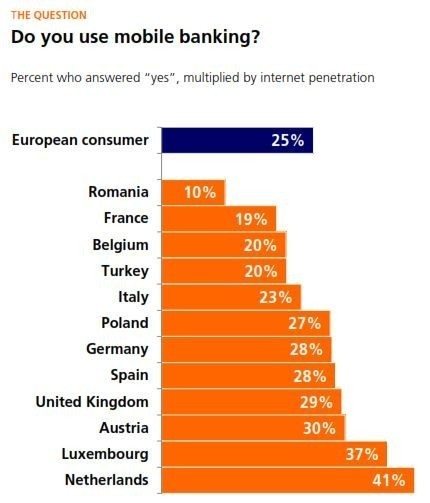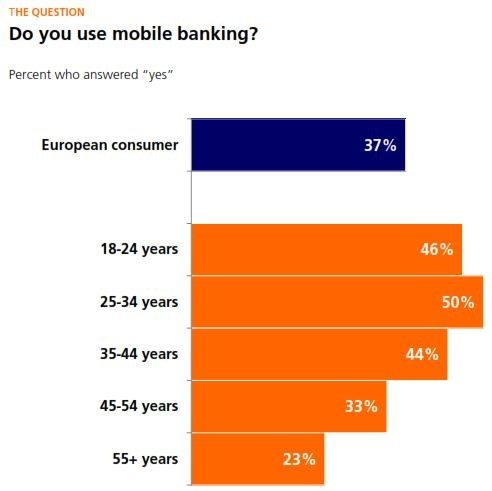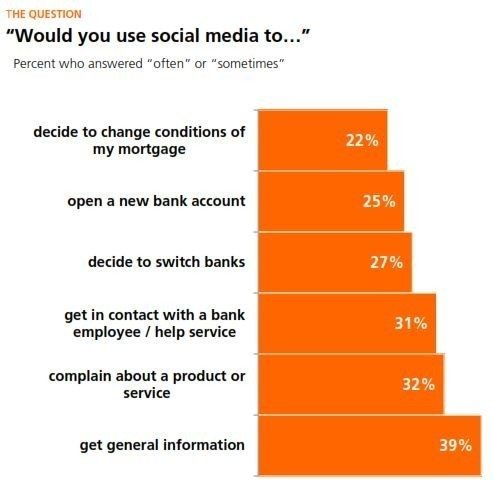
I got a copy of a fascinating survey by ING yesterday on
mobile social banking. The survey asked 12,000 people in 12 countries in Europe about banking in the digital age, and here’s their summary of the main conclusions:
1. More than a third – or 37% – of consumers already use mobile banking. The Netherlands
is the most developed mobile banking spot, based upon the measure that takes
internet penetration into account. Turkey is the mobile banking hotspot, with
the largest share of internet users who use mobile banking.

2. The uptake of mobile banking is much stronger for under
35s and for people who frequently use social media, groups seen to indicate
future trends. It suggests mobile
banking will become increasingly popular.

3. People who use mobile banking say they are managing their money differently.
Most report feeling more “in control” of their money, checking their account
more frequently, paying bills on time more often and being overdrawn less
often. These insights into changing behaviour are, however, based on what
people say they are doing rather than actual, transaction-based evidence (and
the two can differ).
4. The security of contactless
payments is still a concern to the majority in four of the countries surveyed
– namely France, Luxembourg, Germany and Austria – and almost a fifth of
European consumers don’t know if they are confident in the security. Younger
people are more comfortable with contactless payments, again suggesting this form
of payment may become increasingly popular.
5. Even as technology advances, traditional, printed cash is still a popular device to monitor and
keep control of spending. Half of European consumers agree they prefer to
use cash when shopping because it is easier to see when they are spending too
much. This rises to a high of 61% in Spain. It is popular among under 25s as
well, with 64% agreeing. It is a fascinating insight against the backdrop of
the rise of “cashless” bank cards and contactless payments and the apparent
contrast with their widespread acceptance by younger people.
6. Social media plays
a role in the way people interact with their bank but traditional word-of-mouth
still tends to be the most powerful force for recommendations. People are most interested in finding information about and getting tips
from their bank via social media. They are
less interested in offers of products and services.

Chris M Skinner
Chris Skinner is best known as an independent commentator on the financial markets through his blog, TheFinanser.com, as author of the bestselling book Digital Bank, and Chair of the European networking forum the Financial Services Club. He has been voted one of the most influential people in banking by The Financial Brand (as well as one of the best blogs), a FinTech Titan (Next Bank), one of the Fintech Leaders you need to follow (City AM, Deluxe and Jax Finance), as well as one of the Top 40 most influential people in financial technology by the Wall Street Journal's Financial News. To learn more click here...

